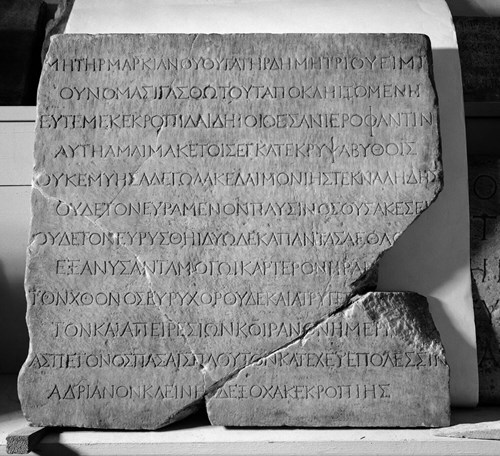The Eumolpidae
The genos was one of the primary nuclei of ancient Greek society. It comprises families that trace their origins to a common ancestor and adhere to common religious traditions. There were at least fifty gene in ancient Athens, numbering from a few dozen to a few hundred adult male members. One of the main functions of the gene was to fill sacerdotal positions in the city and to take responsibility for the organisation and performance of religious festivals and services. Participating in a genos gave its members social respect and could have tangible benefits, so it was an element of identity reverently guarded over the centuries. The most potent gene could trace their descent to a famous mythical ancestor of aristocratic pedigree.
The highest priestly offices of the Eleusinian cult were the property of the city’s old gene, who had received the traditions and the secret ceremonies from the mythical heroes. When the state adopted family worship, members of the genos retained the privilege of being elected to priestly positions. The Eumolpidae were Eleusis’ most prominent and influential genos because they could trace their origins to Eumolpus. He was a pious king and high priest to whom Demeter entrusted the sacred mysteries. He had also heroically sacrificed his life in the struggle against the Athenians under King Erechtheus. The defeat of the Eleusinians in this conflict led to the overthrow of the independent state of Eleusis and the assimilation of the Mysteries by the Athenians. The Eumolpidae, however, secured the privilege of holding the highest priestly office of the hierophant and occupying many positions in the priesthood that was responsible for the worship of Demeter and Kore.
The Eumolpidae was one of the most prominent gene in Eleusis and among the noblest houses of Athens. The Eumolpidae exercised significant public influence as custodians of the sacraments and judges in matters of a religious nature and disrespect to the sacred objects. At the same time, all members of the genos had the right to initiate the faithful.
The supremacy of the Eumolpidae was commonly accepted. They controlled the sacred objects and had the exclusive privilege of displaying them to the mystai. In classical times, Pericles advised his fellow citizens not to limit themselves to the written laws of the state but to respect and obey the unwritten laws possessed and interpreted by the Eumolpidae. In the Roman imperial years, the Athenians gave Hadrian the highest possible honour by recognising him as a member of the genos and proclaiming him its leader. The indisputable supremacy of the genos was maintained until the end of the sanctuary’s history.

Inscription in honor of the priestess of Eleusis who initiated Emperor Hadrian to the mysteries (2/2), 125-150, sculpture, Musée du Louvre © 2009 Musée du Louvre / Daniel Lebée/Carine Deambrosis





